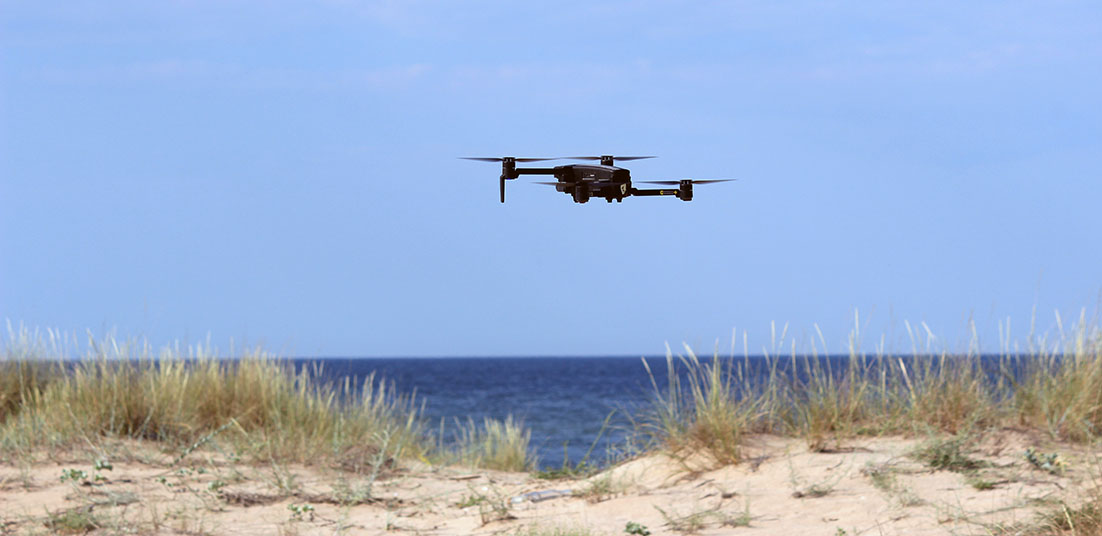
Dr D Green, Prof J McKinley (Deadline for applications: Wednesday, January 17, 2024). Competition fully funded, 42-month PhD project is part of the QUADRAT Doctoral Training Partnership (Students Worldwide)
All coastlines are subject to dynamic change through wave and wind action resulting in significant loss or gain of land through erosion and/or accretion. Many areas around the World are increasingly being exposed to such threats resulting in partial or complete loss of assets in the most severe cases. In the future, climate change will likely accelerate the rate of coastline change with rising sea levels and more frequent and energetic storms. Widespread evidence of climate change impacts on coasts around the world, when coupled with increasing demands being placed on dwindling management budgets, and the need to protect valuable coastal assets suggests the need for new, more cost-effective, approaches to local coastal management problems.
A focus on developing new, low-cost, and environmentally sustainable solutions will be important. This research project will design, model, implement and test a novel coastal engineering solution for the protection of coastal assets at risk, specifically golf courses. A hybrid-protection solution using sustainable materials bound into a flexible and tethered structure, allowing wind- and water-borne material to penetrate, and be captured by the structure, will be developed, and tested. This will be a low-cost structure easily installed, maintained, and managed at the local community level.
Testing of the structure will require in-situ monitoring. The potential for equipping the structures with onboard smart sensors to monitor stresses, strains and structural deformation over time is being pursued, whilst aerial drone camera sensors will be used to acquire aerial images and to generate mosaics and 3D models to establish environmental baselines. This will allow spatio-temporal changes to be monitored and the derivation of quantitative measurements (e.g. volumetric change) in the soft coastline both at and adjacent to the trial sites. This will provide valuable insight to the optimal design and positioning of coastal protection structures. Training provision will include on-campus, in-situ and online training activities delivered in part by the supervisory and advisory team to provide background and contextual knowledge, understanding and expertise needed for the PhD candidate to undertake the research project.
Candidate Background:
Essential: This is an applied geospatial research project requiring a combined background in environmental science/engineering and the geospatial sciences: with coastal engineering, modelling, programming, GIS, geostatistics, and remote sensing knowledge, understanding and expertise.
Desirable: An interest in the role of drones and their application is highly desirable, as is coastal and environmental management. Practical support/training will be provided by the University (AICSM, GIS, and UCEMM), DroneLite (drone company), the CASE partner and collaboration with R&A and local authorities.
Candidates should have, or expect to achieve, a minimum of a 2.1 Honours degree (or equivalent) in a relevant subject. Applicants with a minimum of a 2.2 Honours degree may be considered providing they have a Distinction at Masters level.
Informal enquiries are encouraged, please contact Dr David Green () for further information.
Deadline for the application submission: January 17, 2024
For more information and how to apply, please follow the link:
